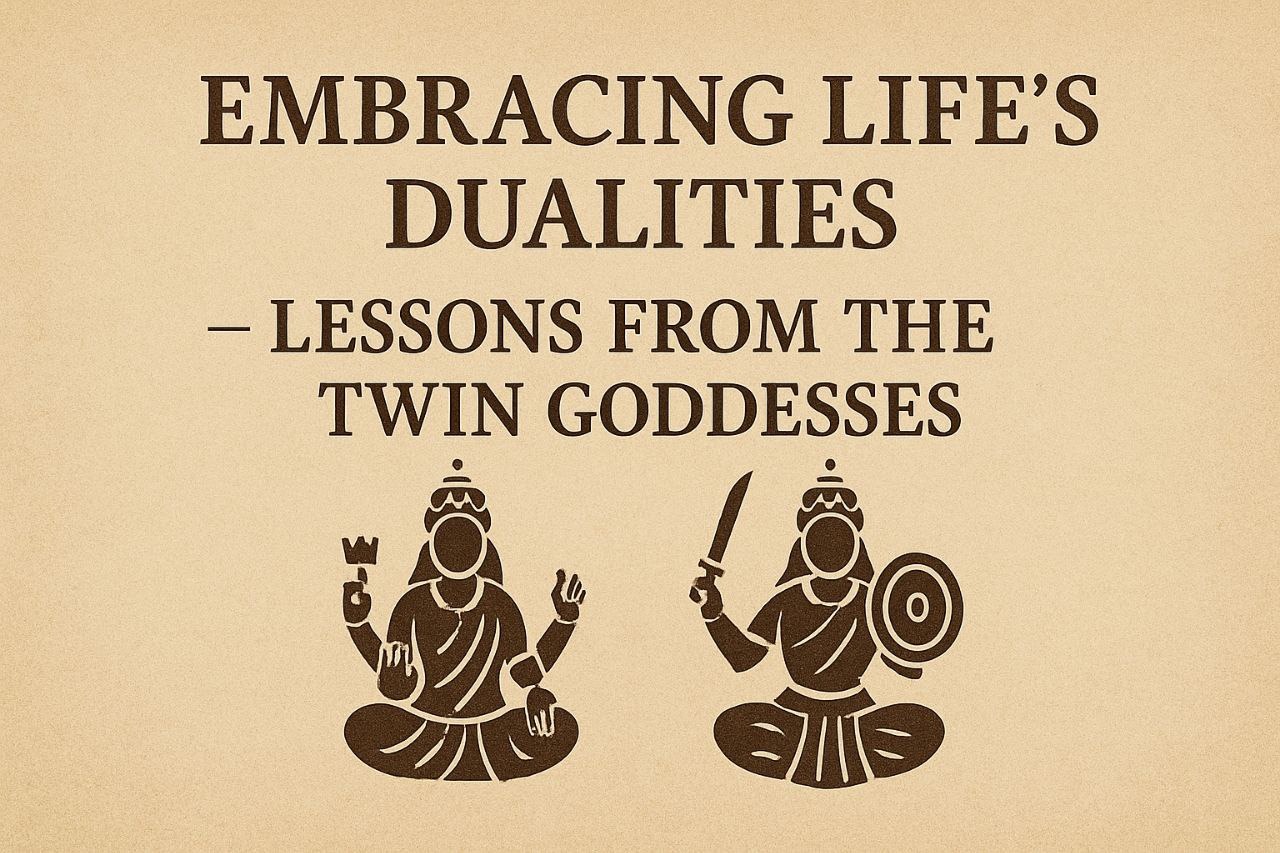Embracing Life’s Dualities: Lessons from the Twin Goddesses

In a quiet village, a lonely middle-aged man receives an unexpected visit, first from a radiant goddess promising prosperity, love, and success, and later from her twin sister, a harbinger of poverty, failure, and loneliness. He welcomes the former with joy but recoils in fear from the latter. Yet, as the story unfolds, he learns a profound truth: the goddess of virtue and the goddess of darkness are inseparable. To accept one is to accept both.
This symbolic tale from the Nirvana Sutra is not just a myth, it’s a mirror reflecting the unavoidable dualities of our own lives.
The Inseparable Twins: Joy and Sorrow
Human nature gravitates toward the pleasant. We crave success, love, wealth, and recognition. But life, in its true essence, is a dance of opposites. Every rise carries within it the seed of a fall; every celebration is shadowed by the possibility of grief. Just as day must surrender to night, pleasure must eventually give way to pain.
What this story reminds us is that trying to isolate happiness from suffering is not only futile, it’s unnatural. They are twin aspects of the same reality, each lending meaning and depth to the other. Without cold, would we know warmth? Without sorrow, would joy be as sweet?
Why Darkness Must Enter
We often resist hardship because we fear it will break us. But difficulty does not come to destroy; it comes to transform. The Goddess of Unpleasant Darkness may seem cruel at first glance, but her arrival can lead to some of life’s greatest lessons.
- Poverty teaches gratitude.
- Failure teaches humility.
- Loneliness deepens introspection.
- Pain cultivates compassion.
Much like the seasons, our inner life must experience the winter of discomfort to appreciate the spring of ease. We grow not despite the darkness but because of it.
Choosing Wholeness Over Perfection
The man in the story is given a choice: to accept the fullness of life or to live in fear, clinging only to the parts he likes. His initial reaction mirrors our own tendencies, to push away pain, to avoid discomfort, to say no to anything that doesn’t glitter. But the goddess’ gentle truth reveals that we can never truly welcome joy without being ready to face sorrow.
To live fully is to embrace life in its entirety, both the dazzling light and the haunting shadows. This acceptance is the heart of wisdom, the foundation of peace.
The Spiritual Gift of Suffering
Eastern philosophies often speak of suffering as the gateway to enlightenment. Why? Because it breaks the illusions we live under. It peels away layers of ego, pride, and attachment, leaving us raw and real. It brings us closer to our true selves.
Pain forces us to ask deeper questions:
- What truly matters?
- Who am I beneath this success or failure?
- Where does my inner peace come from?
When we allow suffering to be our teacher instead of our enemy, it refines us. It builds character, fosters empathy, and opens the doors to spiritual insight.
A Life of Balance and Awareness
The tale of the twin goddesses is more than a parable; it's a timeless truth. Life is not meant to be either joyful or painful, it is meant to be both. Our task is not to eliminate one side of the coin but to learn to hold both sides with grace.
So when the Goddess of Pleasant Virtue knocks on your door, celebrate her presence. But when her shadowy sister arrives, don’t slam the door in fear. Invite her in too. Offer her a seat. Listen to what she has to teach.
For in embracing both, you don’t just become wiser, you become whole.
“To seek only the light and shun the shadow is to live half a life; true wisdom is found in embracing both, for it is in darkness that the soul learns to shine.” ~ Adarsh Singh
Wed Apr 23, 2025
